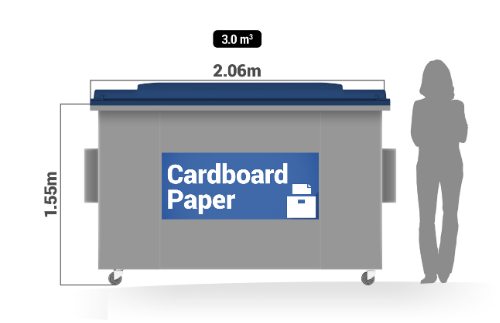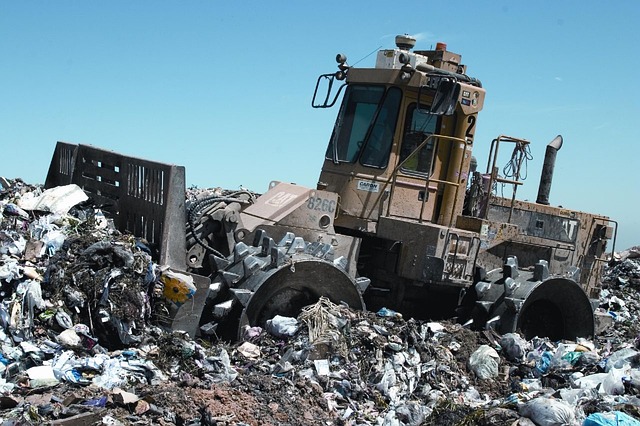The Absence Of Rubbish Bins In Japan 🗑️
Energy Disrupter
Rubbish Bins In Japan 🗑️: In this blog, we’ll explore the fascinating reasons behind Japan’s unique approach to waste management and why you rarely find a place to throw away your rubbish while out and about.
Japan is a country renowned for its breathtaking landscapes, bustling cities and pristine streets. To tell you the truth, it has been a dream of mine for a long time to go to this country, mainly due to the aforementioned reasons. Who wouldn’t want to see beautiful phenomena happen such as Sakura (cherry blossom) trees blooming, after all?
Another breathtaking aspect of Japan is its cleanliness. Whether you’re wandering through the serene gardens of Kyoto, marvelling at the neon-lit skyline of Tokyo or hiking the slopes of Mount Fuji, one thing always stands out—how remarkably clean everything is.
Yet, despite the millions of people traversing its cities every day, rubbish is almost nonexistent in this East Asian country. But for many visitors, one puzzling question arises: Where are all the rubbish bins in Japan? It seems almost paradoxical that a country so spotless would have so few rubbish bins in public spaces.
However, there are a few, strong reasons for this. We will cover all of the major reasons why there are no rubbish bins in Japan. So, we suggest you read below to learn more!
>Download Now: Free PDF Business Owners Guide To General Waste Bin Services
Here’s why there are no rubbish bins in Japan
Despite the cleanliness of Japan that greatly upgrades its beauty, a lot of you may wonder about the absence of rubbish bins. Coming from a country that sees a lot of rubbish bins in our streets, personally, this fact really surprised me at first.
However, there are a few reasons why there are no rubbish bins there. Below, we share the 4 main reasons why Japan has no rubbish bins in sight:
Reason #1: The 1995 Sarin Gas Attack left a lasting scar on Japan
Unfortunately, the biggest reason is not a positive one.
The 1995 Sarin gas attack was a devastating terrorist incident that took place in Tokyo, Japan, on the morning of March 20. Members of the doomsday cult Aum Shinrikyo released sarin, a deadly nerve agent, in the city’s subway system during rush hour.
The attack targeted five trains converging at Kasumigaseki, a key hub for government offices. The liquid sarin, placed in plastic bags and punctured with umbrellas, quickly evaporated, releasing toxic fumes that spread through the subway cars.
The attack killed 13 people and left over a thousand others injured, many with severe, long-term health issues, with a majority reported to have had temporary vision problems. This incident shocked Japan and the world, revealing the dangers posed by extremist groups.
It also led to a crackdown on Aum Shinrikyo and raised concerns about urban security and the potential for large-scale chemical attacks.
The attack significantly contributed to the removal of public rubbish bins in Japan, especially in high-traffic areas like train stations.
In the aftermath of the attack, authorities became concerned about public safety, as the terrorists had concealed the sarin gas in plastic bags, which could have been easily hidden in rubbish bins.
To mitigate the risk of future attacks involving explosives or other hazardous materials, the Japanese government decided to remove many public rubbish bins, particularly from areas where large numbers of people gather.


[embedded content]
Reason #2: Japan has no rubbish bins because of their responsible culture
Japan’s lack of public rubbish bins is largely rooted in a cultural emphasis on personal responsibility and cleanliness. In Japanese society, people are expected to take care of their own rubbish, often carrying it with them until they can dispose of it properly at home or in designated areas.
This practice aligns with the concept of ‘mottainai‘, which conveys a sense of regret over wastefulness and encourages reducing waste, reusing items, and recycling.
Public rubbish bins could encourage more waste generation and complicate Japan’s strict recycling system, where people must meticulously sorted into categories like burnable, non-burnable, and recyclable rubbish.
By removing most public bins, individuals are responsible for ensuring proper disposal and sorting of their waste at home, helping maintain the country’s rigorous recycling efforts.
Respect for public spaces is also a key factor. Littering is considered highly disrespectful, and there’s a strong communal ethic of keeping public areas clean.
It’s not uncommon to see volunteers or community members cleaning the streets, reinforcing the idea that maintaining cleanliness is everyone’s duty, not just the government’s.
Ultimately, Japan’s approach to waste management reflects broader cultural values of personal responsibility, environmental mindfulness, and respect for shared spaces—contributing to its famously clean public areas, even without the presence of rubbish bins.
Reason #3: A strict country means a strict waste management system
Japan’s strict recycling and waste sorting system serves as a key reason for the scarcity of public rubbish bins. Waste is carefully divided into categories like burnable, non-burnable, plastics and recyclables, with specific collection days for each. This detailed sorting makes it much easier to manage at home, so individuals can expectedly handle their waste properly there. Public bins could complicate this system and lead to improper disposal.
The focus on personal responsibility also drives this practice. With fewer public rubbish bins, people are more inclined to carry their waste until they can dispose of it correctly.
This approach promotes greater awareness of the waste they produce and encourages responsible habits like reducing and recycling.
Additionally, limiting public bins helps keep streets clean. Improperly sorted trash in public areas can lead to litter and contamination of recyclable materials.
By taking responsibility for their own waste, people contribute to maintaining the cleanliness of public spaces and support Japan’s high recycling rates and commitment to environmental sustainability.
Reason #4: Of course, Japan with no visible rubbish bins aims for waste reduction
Japan’s approach to waste reduction significantly influences its lack of public rubbish bins.
Limiting the number of bins encourages people to mind where their waste goes more, leading to a culture of minimising waste. Without nearby bins, this motivates individuals to reduce and manage their waste more carefully.
This practice also supports Japan’s waste management goals by preventing the overuse of waste collection and recycling systems. Public bins can encourage increased waste generation and improper disposal, while fewer bins promote responsible habits and waste reduction.
Moreover, fewer public bins help maintain the effectiveness of recycling programs. When people handle their own rubbish, they are more likely to sort it correctly, reducing contamination and supporting high recycling rates. This approach helps keep public spaces clean and aligns with Japan’s commitment to sustainability.
Contacting Waster
Looking for a specific bin service? Check out our waste recycling shop and find the best deals in terms of pricing and services.
Also, please call 1300 WASTER (1300 927 837), or email us at [email protected] if you have any further questions.

















